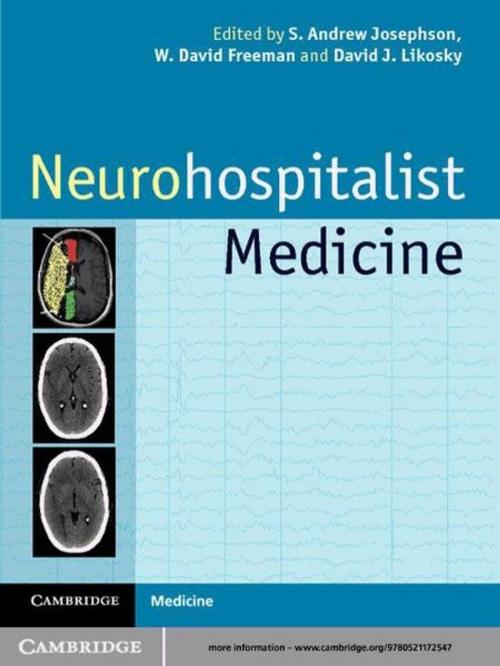Neurohospitalist Medicine
Nonfiction, Health & Well Being, Medical, Specialties, Internal Medicine, Neurology| Author: | ISBN: | 9781139140041 | |
| Publisher: | Cambridge University Press | Publication: | September 29, 2011 |
| Imprint: | Cambridge University Press | Language: | English |
| Author: | |
| ISBN: | 9781139140041 |
| Publisher: | Cambridge University Press |
| Publication: | September 29, 2011 |
| Imprint: | Cambridge University Press |
| Language: | English |
Over the past decade, the hospitalist model has become a dominant system for the delivery of inpatient care. Forces such as national mandates to improve safety and quality, and intense pressure to safely reduce length of hospital stays, are now exerting pressure on neurologists. To meet these challenges, a new neurohospitalist model is emerging. This is the first authoritative text to detail the advances and strategies for treating neurologic disease in a hospital setting. It includes chapters on specific acute neurologic diseases including stroke, epilepsy, neuromuscular disease and traumatic brain injury and also addresses common reasons for neurologic consultation in the hospital including encephalopathy, electrolyte disturbances and neurologic complications of pregnancy. Ethical and structural issues commonly encountered in neurologic inpatients are also addressed. This will be a key resource for any clinician or trainee caring for neurologic patients in the hospital including practising neurologists, internists and trainees across multiple subspecialities.
Over the past decade, the hospitalist model has become a dominant system for the delivery of inpatient care. Forces such as national mandates to improve safety and quality, and intense pressure to safely reduce length of hospital stays, are now exerting pressure on neurologists. To meet these challenges, a new neurohospitalist model is emerging. This is the first authoritative text to detail the advances and strategies for treating neurologic disease in a hospital setting. It includes chapters on specific acute neurologic diseases including stroke, epilepsy, neuromuscular disease and traumatic brain injury and also addresses common reasons for neurologic consultation in the hospital including encephalopathy, electrolyte disturbances and neurologic complications of pregnancy. Ethical and structural issues commonly encountered in neurologic inpatients are also addressed. This will be a key resource for any clinician or trainee caring for neurologic patients in the hospital including practising neurologists, internists and trainees across multiple subspecialities.















